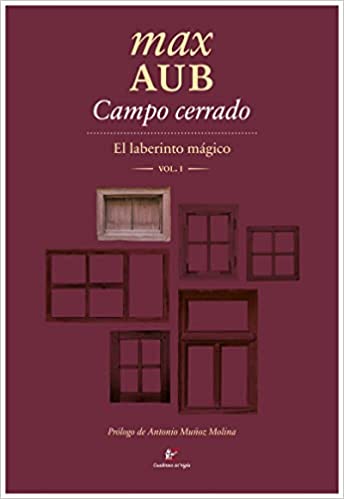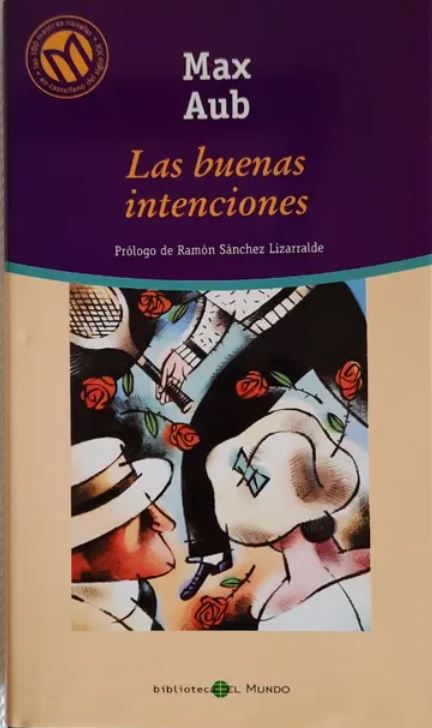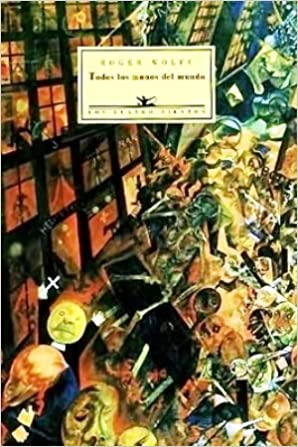Sometimes the much sought after talent of a country ends up being imported by chance. And that's what happened with a Max Aub naturalized Spanish by exile of his parents and then nationalized to end up being one of those world storytellers from his casual Spanish roots. Spain as a small country that gave him the language as a channel to compose a very extensive bibliography in prose, essays and especially dramaturgy.
Few authors as intense as a Max Aub who ended up adopting four nationalities, due to German origin or while passing through France, Spain and Mexico in a life marked by that wandering of stateless people, dissidents or simply marked in a Europe of the XNUMXth century that chronicled its conflicts and that ends up elevating populisms redirected towards xenophobia and unhealthy navelism from which to look for all the evils coming from outside.
It often happens that creators, writers, painters and other plethora of minds capable of appreciating nuances end up getting closer to the perspective of the varied, of the famous and now reviled equidistance.
And that space of liberated thought always ends up being the place of the losers against the closed-mindedness of hatred that convinces the middle classes. Hence the journey of an adult Max Aub who ended up flourishing in his maximum narrative splendor in a Mexico far from the sinister ostentations of power, lack of culture and fear consolidated in Europe.
Top 3 recommended books by Max Aub
Closed field
Max Aub's intense foray into the novel starts from this first work that reflects his particular perspective of the pre-war tensions, especially from the alienated perspective of a protagonist, Rafael López Serrador, who wishes to find but a youthful dream if at all. less a vital foundation in the city of Barcelona.
Rafael's extreme experiences can be extrapolated to the whole of polarized Spanish society, mobilized by ideals capable of awakening inhumanity as a form of opposition to a ghostly enemy driven by hunger and hardship.
From Castellón, that young man who marched in search of a destination, ends up becoming one more survivor of the great city, capable of everything to get ahead and redirected towards the militia side that would manage to keep that enemy at bay that was deep down a brother.
The novel ends with a republican pyrrhic victory, leaving the idea of a victory suspended in the air that in the end would only be the beginning of the final defeat.
Good intentions
The most basic realism made into a novel is what it has, which is not going to take off or present great epic notions of history. However, from how small, from that unpretentious mirror that this type of story can be, it is possible to taste a faithful portrait of the intra-stories that are never told.
And without a doubt Augustine, the protagonist of this story, would be the last character who could lead a great classic novel. However, there is something of the Homeric simplicity in what Augustine represents.
A nobody with pretense of nothing that can be similar to the stoic inhabitant of any place, capable of carrying carts and wagons, assuming guilt and losing, as long as nothing that is established changes, as long as no one in the family saddens .
In some fatal life events to which he himself leads, we are visiting, with Agustín's eyes, a world of Spain before and during the war. Places like Madrid, Zaragoza or Barcelona. Gray cities for a gray type and in the end they bring a strange nihilistic glow of defeated spirit.
Almond fields
The end of the war saga of the magic labyrinth. A final work in keeping with that synthesis of the Spanish civil war as a confrontation against the very shadows of what was Spain. How could it be otherwise, we start from the final moments of the war, when victory is already declining towards the insurgent side.
Withdrawal is the least desired military practice and, in the case of civilians, the most devastating, since what little remains of life is left behind. End of the war, time to flee like rats or to change sides also like rats.
Whatever you do at that moment, you stop being the person with dignity or hope, because the enemy behind your back is preparing to strip you of everything. A large group of rebels, militiamen and civilians in general approach Alicante looking for the promise of a ship that will take them to some free land.
Hardships occur during the wait. And only at the end, as a sad irony, a ship arrives whose last task is to take them to a free land.



